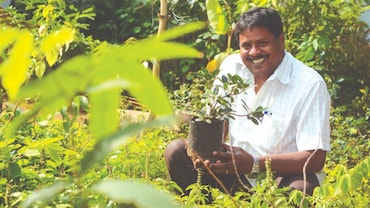- HOME
- /
- Features
- /
- Animal Stories
- /
Lessons In Hope, Loyalty, Gratitude And Generosity You Can Learn From Your Beloved Pets
Our pets hold a mirror to ourselves and keep reminding us of who we are, and who we can be
 Photo: Pxfuel
Photo: Pxfuel
“Snoopy adopted us today!” I’ve come to realize that this is not a misnomer. And why shouldn’t we consider our pets to have adopted us, instead of the other way round? They come to our homes filling them with joy, love, pride and comfort; when they depart, they leave us in deep pain. I frequently find myself thinking of the profound impact they have on our lives.
A psychosocial support
The roots of the well-documented psychosocial relationship between humans and animals can be traced back to our childhood. After parents, children often form their first kinship with animals, even the ones in stories. It’s no wonder, then, that many of us grow up listening to tales of animals playing human roles, as they offer a window to the world. And for children, who lack the care or presence of parents, pets often become an emotional and psychological tether and support—one they strongly identify with, cherish and take care of in a way that compensates for their neglect and loss.
Understanding human emotions
You may have come across the word, ‘container’. Among its many connotations, in the field of psychology, it’s used to denote our tendency to carry others’ unconscious feelings for them. Pets too often become containers for our most intimate wishes, fantasies and desires that may seem burdensome to us. They grasp that we can be warm and cold, angry and affectionate, distant and close without judging us. And it is this non-judgmental acceptance that makes them an ideal and safe recipient of the thoughts and emotions we project.
 Pets help us facilitate the flow of our work. (Photo courtesy Sanghamitra Chakraborty)
Pets help us facilitate the flow of our work. (Photo courtesy Sanghamitra Chakraborty)
My neighbour can often be heard ‘talking’ to her birds. I have also interacted with artists who are able to write, paint, sing and dance more efficiently when their pets are around. How so? Research suggests that the presence of pets acts as a buffer against stress and anxiety, in effect both anchoring us and facilitating the flow of our work.
What about anger, then? Here too, the company of a pet can provide a channel for mitigating or subduing it.Often, after a fight at home or with our friends, we seek refuge in the fluffy ones. However, if you need space for an outburst of anger, pets, especially dogs, can understand that too—they are quite averse to expressions of anger, and stay away from people in such situations.
Pets as therapy
I often hear my colleagues talk about how pets help break ice between people and build rapport between them, and how they act as sensory, emotional aids to people with disabilities.
I feel that we also share a certain ‘bodily’ relationship with our pets that brings us closer. I, for example, always feel grounded in the presence of cats and more playful around puppies. The relationship extends even further—we tend to see young dogs and cats as ‘children’ bent on creating chaos, while their older counterparts are often valued for their almost maternal presence that allows us to stay calm.
 Not only do pet dogs turn out to be peaceful, they also lend a certain sense of calm to their surroundings. (Photos courtesy Sanghamitra Chakraborty)
Not only do pet dogs turn out to be peaceful, they also lend a certain sense of calm to their surroundings. (Photos courtesy Sanghamitra Chakraborty)
***
I have come to realize that we can’t ‘own' pets—we share a relationship with them where they teach us about love, fear, anger, hope, gratitude and generosity. And just like in the game of fetch, we indeed need our pets to always keep returning to us, to hold a mirror to ourselves and keep reminding us of our virtues and vices.
While returning home with your pet, ask yourself this question: Who is grateful for receiving whom? We overcome many of our fears when we are seen and recognized by our pets. It’s as though we look into their big, wobbly eyes, not so much to appreciate their glory but rather to find a reflection of our own selves.






